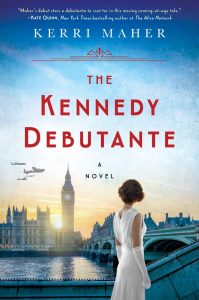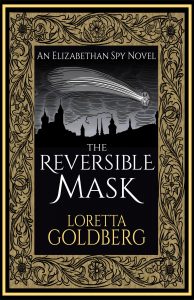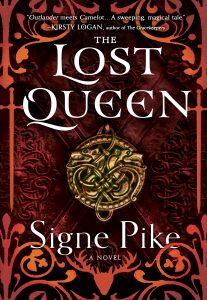New Voices: Loretta Goldberg, Kerri Maher, Wayne Ng and Signe Pike
 Wayne Ng’s novel Finding the Way: A Novel of Lao Tzu (Earnshaw Books, 2018) draws readers into the world of two philosophers, Lao Tzu and Confucius. “Although many people may have heard of yin/yang, tai chi and kung fu,” Ng explains, “most would not attribute their genesis to Lao Tzu, one of the most revered minds of ancient China and the founder of Taoism.
Wayne Ng’s novel Finding the Way: A Novel of Lao Tzu (Earnshaw Books, 2018) draws readers into the world of two philosophers, Lao Tzu and Confucius. “Although many people may have heard of yin/yang, tai chi and kung fu,” Ng explains, “most would not attribute their genesis to Lao Tzu, one of the most revered minds of ancient China and the founder of Taoism.
“I was brought up with a vague fusion of Taoism and Confucianism,” he says. That said, “I didn’t know anything about this philosopher until I read my wife’s favourite book, The Tao of Pooh, an interpretation of Lao Tzu’s seminal work, the Tao De Ching.” It was from this starting point that the silken thread of Ng’s story started to emerge. “Legend tells us that 2600 years ago China was in constant war and upheaval… A brilliant, yet naïve, romantic emerged, doomed to tragedy and despondent at the world’s moral decay. So much so that he rode off on a water buffalo to die.”
Ng wanted to find out and what left Lao Tzu in such despair. “I devoured the Tao De Ching as a portal into the dreamer that he must have been. I fell in love with the notion of an enlightened idealist, one who dreamt of a better world, a just society, but whose idealism was crushed by a harsh reality. As a social worker I identified with the quiet rebellion he fostered, and his profound sense of social justice.”
What Ng learnt from his study of The Way/Taoism was that “our thirst for sanity and simplicity is a quest that transcends culture and time. Through imagining his story and the development of his philosophy, I questioned much of how I work, live and play. In essence, I discovered Taoism, and my own way. Ancient China is filled with fascinating stories and riveting characters waiting to be brought to life. I wanted to introduce the west to a time, a place and a legend that has largely been ignored, but in an entertaining way. The result was a political thriller wrapped in a philosophical bow tie.”
Kerri Maher’s The Kennedy Debutante (Berkley, 2018) is centred around political intrigue of a different kind, but equally as damaging to those caught up in it.
“I was a big Downton Abbey fan,” she says, “so I was happy to watch other shows related to the lush costume drama, like the documentary series Secrets of the Manor House, which started with Highclere Castle, where Downton was filmed. Another episode was about Chatsworth, the seat of the Dukes of Devonshire. I was fascinated by the history of the estate that had been home to Georgiana, the tragic Duchess of Devonshire, as well as the Bachelor Duke, and other important figures of English history.
During that programme, “a few minutes were devoted to … Kathleen ‘Kick’ Kennedy, the fourth child of Ambassador Joseph P. Kennedy and JFK’s favorite sister.” Their love, Maher says, was “opposed by both their families, for he was from one of England’s most prominent Protestant families, and she was of course, a Kennedy. Irish-American and Catholic.” It was at this point that Maher thought: “There’s a story there.”
“I couldn’t devote myself to it right away, because I was under contract to write This Is Not A Writing Manual for Writer’s Digest, but I did fall down a deep Google rabbit hole chasing Kick. I also started a file on her in my computer that I’d open from time to time until it became clear that her story was demanding to be written.
“I was also attracted to Kick’s story because of two key life experiences we have in common: I, too, was raised Catholic (of an Irish variety); and, I lived in London when I was her age. I, too, fell madly in love with that city, and with England, and it was such a pleasure to be able to share that love in this novel.”
The setting of Maher’s novel, the “Downton-esque season of debutantes and dukes before World War II changed England forever,” would appear on the surface to have little in common with The Reversible Mask by Loretta Goldberg (MadeGlobal, 2018). Yet in both novels, differing religions have a dramatic impact on their main characters.
Goldberg’s “zig zag” into writing, she explains, “is different from many writers. I can’t show you any story I wrote as a child. In fact, my anxious parents insisted that I never make anything up.” Nonetheless, she taught English literature, “then was a concert pianist and financial advisor. Only later did I un-creak the rusted gears of fantasy.”
 What inspired her to write The Reversible Mask was, she says, “a compulsion to bring to life an Elizabethan double agent I’d read about. A letter hooked me. Jailed in France, he was begging his handler to get Elizabeth to tell the French king, her ally, that they’d made a mistake, that they’d jailed her man, not Spain’s. England and France were then fighting Spain. Problem: the spy worked for both Elizabeth and Philip II.
What inspired her to write The Reversible Mask was, she says, “a compulsion to bring to life an Elizabethan double agent I’d read about. A letter hooked me. Jailed in France, he was begging his handler to get Elizabeth to tell the French king, her ally, that they’d made a mistake, that they’d jailed her man, not Spain’s. England and France were then fighting Spain. Problem: the spy worked for both Elizabeth and Philip II.
“His plight called me. But why? I’m a secular Jew! Sir Anthony Standen was an English Catholic courtier who’d left Protestant Elizabeth’s court in the 1560s over religion and spied for Catholic Spain against European Protestants. Yet in the 1580s he spied brilliantly for Elizabeth while on Spain’s payroll. His reasons were unstated but seemed to have gone beyond money.”
Goldberg “felt that his conflicts epitomized, in pure form, dilemmas we face in modern life: a tobacco executive pays his children’s college bills with profits from cigarettes he knows are poison. For most of us these conflicts are temporary. For Standen, eternal damnation loomed. What split could be more profound than a Catholic who believed in transubstantiation and a physical hell yet risked his life to protect his heretical birth country?”
“I wanted to wander in his world. Standen was unknowable, so I invented Sir Edward Latham. He goes into the world a callow youth, is battered, but emerges wiser, bringing benefits back to his tribe. The era is irresistible: the printing press had facilitated outpourings of information and dissent, provoking institutional leaders to clamp down with cruelty. There was a siren call of religious martyrdom. Alliances were upended because of religion, while new learning and far-off lands generated feverish excitement. The revolutionary notion of companionate marriage arose, and secular social welfare. This turbulent world is a character in the novel, a lumbering oaf no one can ignore. Latham is the only person torn between God and country, but simpler characters—people he loves, employs, a few he betrays—are also stressed by change. I kept travels attributed to Standen—England to Constantinople and places between—because I wanted to honour the challenge an expanding world posed to everyone from queens, merchants and generals to deckhands.”
Signe Pike’s The Lost Queen (Touchstone, 2018) is a novel that pays tribute to another lost voice. Pike explains: “I first came across Queen Languoreth’s name browsing the shelves of a tiny bookshop in Glastonbury, England. In a non-fiction book called Finding Merlin by Adam Ardrey, I read some compelling evidence that the legend of Merlin was based on a real man named Lailoken who lived in sixth-century Scotland. He wasn’t a wizard who shot magic from his fingertips. He was a politician and son of a powerful petty king, a warrior and an academic. Later in life, he was known as Myrddin, which means “madman” in Old Welsh. This felt real to me, and I wanted to learn more.
“Ardrey relayed that this man Lailoken had a sister – a twin, and her name was Languoreth. While Myrddin had been relegated to myth, I was intrigued to learn Lailoken’s sister was a historical figure. She was recorded in ancient king lists as the wife of the Brittonic ruler Rhydderch Hael, who scholars agree ruled from Clyde Rock in the late sixth to early seventh centuries. There are children descended from their union, whose names are recorded in ancient Welsh triads and historic genealogies. She would have been one of the most influential women of her time, yet she’d been slandered by her enemies and almost completely obliterated from the public memory.”
 When Pike began to research Languoreth, she says, “I couldn’t stop thinking about the epic times she lived through: the bloody battle that would tear her family apart, the Anglo-Saxon encroachment, the first ever politico-religious acts of violence her people would have experienced. Moreover, in today’s world, when powerful female role models must be brought forth and honored now more than ever, I thought it a travesty that Languoreth had been written out of history, her incredible story never told.”
When Pike began to research Languoreth, she says, “I couldn’t stop thinking about the epic times she lived through: the bloody battle that would tear her family apart, the Anglo-Saxon encroachment, the first ever politico-religious acts of violence her people would have experienced. Moreover, in today’s world, when powerful female role models must be brought forth and honored now more than ever, I thought it a travesty that Languoreth had been written out of history, her incredible story never told.”
Right from the start of her research, she continues, “there was a passion that ignited me, but mostly my work was driven by a sadness over the difficult times in which Languoreth lived, and an injustice that her life had been forgotten. But I don’t believe writers find stories. I believe stories find us. And the way in which this story found me, left me with little choice as to whether or not I was going to write it. It was high time Languoreth re-emerged from the mists of history to assume her rightful place in our hearts, minds, and memories.”
Drawing from a wide swathe of periods and places, Goldberg, Maher, Ng, and Pike have illuminated hidden characters and causes through their novels and brought historical injustices to light.
About the contributor: Myfanwy Cook is an Associate Fellow at two British Universities and a creative writing workshop designer.
Published in Historical Novels Review | Issue 87 (February 2019)






